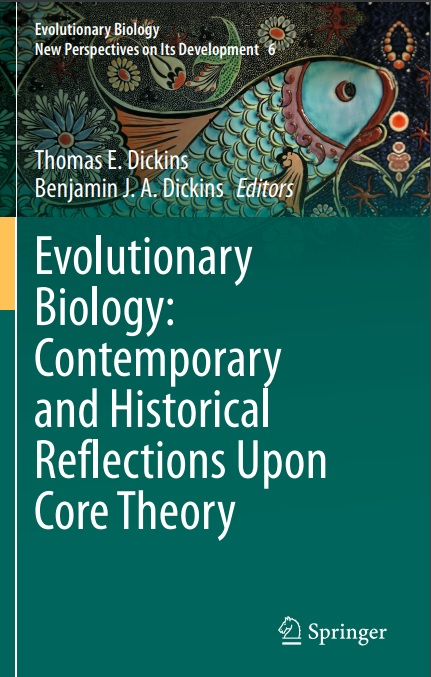Indian scientists have presented a number of novel technical, historical, and philosophical refinements to core concepts in how we understand evolutionary biology and its development in the recent edited volume Evolutionary Biology: Contemporary and Historical Reflections upon Core Theory.
The revised conceptualizations and definitions for natural selection and Darwinian fitness that explicitly include heredity (via transmission fidelities) that Indian scientists from the Foundations of Genetics and Evolution Group (FOGEG) presented bring new ideas towards resolving ongoing debates about the conceptual core of evolutionary theory and whether it needs a substantial overhaul.
The book published by Springer reflects upon core theories in evolutionary biology - in a historical and contemporary context - and has contributions from leading evolutionary biologists worldwide.

Since 2015, FOGEG – made up of JNCASR’s Evolutionary & Organismal Biology Unit faculty (TNC Vidya, Amitabh Joshi) and alumni (Sutirth Dey – IISER Pune, NG Prasad – IISER Mohali) – has been the sole non-western interlocutor in ongoing debates about the conceptual core of evolutionary theory. These debates involve historical, philosophical, and technical issues, including the role of Darwin and of population genetics in the development of evolutionary thought, units, and levels of selection, the so-called 'gene's-eye-view' of evolution, the role of individuals versus genes in evolutionary explanation, direct versus inclusive fitness, individual versus kin selection, and the logical relationships between selection, development, non-genic inheritance, and niche construction.
In their chapter in the book, the authors have highlighted the importance of treating selection as a process, not an act, and of focussing on causes and consequences of selection separately when evaluating the roles of different levels of biological organization and various biological phenomena in evolution. These novel approaches have the benefit of clarifying and resolving several pernicious debates about units and levels of selection, the so-called 'gene's-eye-view' of evolution, the role of individuals versus genes in evolutionary explanation, direct versus inclusive fitness, and the logical relationships among various evolutionary factors and phenomena.
The authors have also highlighted that more than natural selection and descent with modification, it was Darwin's specific operationalization of the concept of selection that was unique (and differed from the conceptualizations of both Alfred Wallace and Herbert Spencer), and which included the aspects of the atomization of individuals into traits and a reconceptualization of heredity, which standard historiography of evolution has erroneously ascribed to the post-Mendel period. The chapter also emphasises that there are two distinct ‘gene’s-eye-views’ of evolution, not one as is commonly believed, showing that the Fisherian gene’s-eye-view of evolution is fundamentally different from, and not the precursor of, the Dawkinsian gene’s-eye-view. This is the first time in many decades that Indian biologists have put forward such extensive novel refinements to fundamental conceptual principles in the field.
Commenting on the chapter written by the FOGEG group, Prof. Vassiliki Smocovitis, a distinguished historian of evolutionary biology from the University of Florida, refers to it as a “chapter of exceptional eloquence and profound insights". It is very rare for Indian biologists to be contributing to such major and profound debates around the 'soul of the subject'. The present book chapter and the earlier 2017 FOGEG paper are already being used as readings in a graduate seminar course at the University of Florida.






























